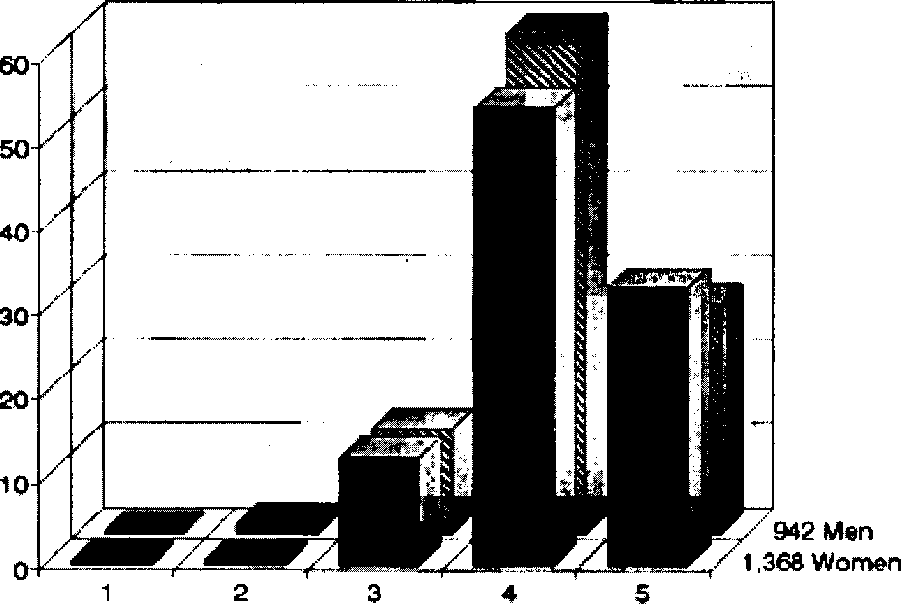Happy Is As Happy Does
which Tellegen and I reported these findings, I said that “It may be that trying to be happier is as
futile as trying to be taller” but I regretted that remark as soon as it appeared in print.
I should explain first that if our happiness set-points were indeed biologically fixed, that
would not really be as bad as it sounds because the vast majority of humans seem to be relatively
happy most of the time. The next slide shows the results when we asked some 2,300 of our
Registry twins to indicate how they thought they compared with people in general on
“Contentment. “Taking the good with the bad, how happy and contented are you on the average
now, compared with other people?” They were asked to rate themselves ‘5’ if they thought they
were among the upper 5% of the population, a ‘4’ if they were among the next 30%, a ‘3’ if in
the middle 30%, and so on. As you can see, some 86% of our sample thought they were in the
upper 35% in happiness.
CONTENTMENT BY GENDER

Contentment Self-Rating
More intriguing information
1. The Social Context as a Determinant of Teacher Motivational Strategies in Physical Education2. The urban sprawl dynamics: does a neural network understand the spatial logic better than a cellular automata?
3. Howard Gardner : the myth of Multiple Intelligences
4. Nurses' retention and hospital characteristics in New South Wales, CHERE Discussion Paper No 52
5. Testing Gribat´s Law Across Regions. Evidence from Spain.
6. ISSUES AND PROBLEMS OF IMMEDIATE CONCERN
7. AN IMPROVED 2D OPTICAL FLOW SENSOR FOR MOTION SEGMENTATION
8. The name is absent
9. Has Competition in the Japanese Banking Sector Improved?
10. The name is absent